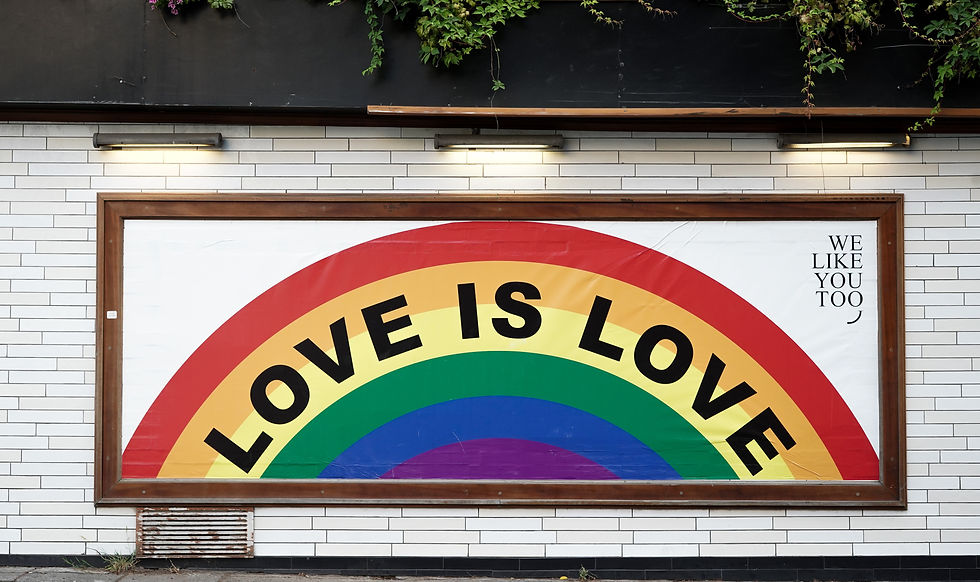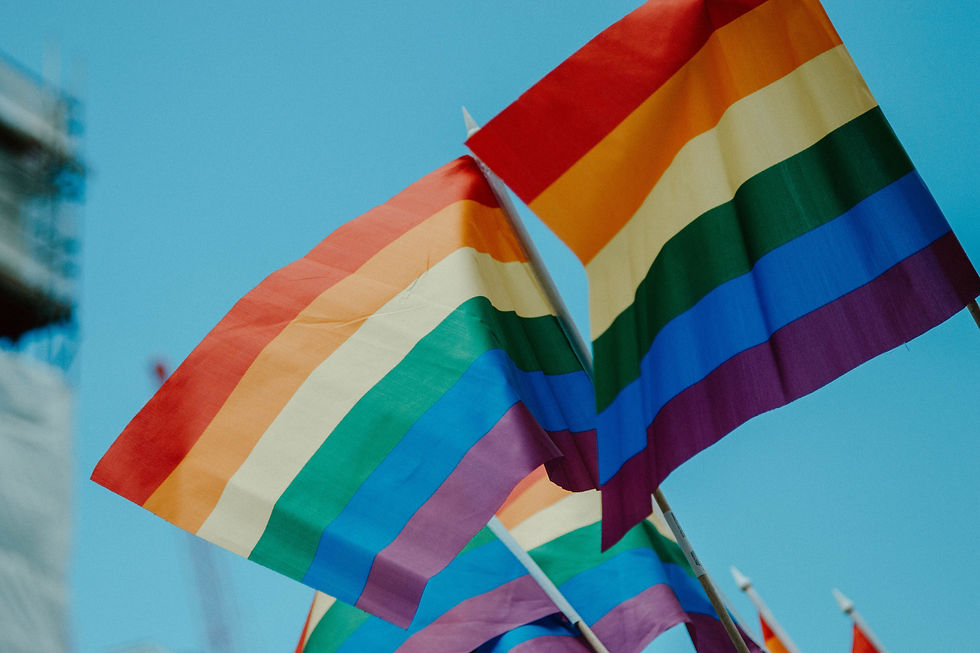3 LGBTQ+ Figures You Should Know About
- Adam Cooper
- May 25, 2023
- 4 min read
Britain is awash with gay and queer icons. From the global rockstars of Elton John and Freddie Mercury to the intellectual geniuses of Alan Turing and Stephen Fry, there have been powerful and influential voices in the LGBTQ+ community over the last century that have brought positive change to the world in terms of acceptance and tolerance. But there are some iconic figures that are not household names, that have challenged stereotypes, campaigned for equal rights and forged a more inclusive society but are unheard of by the majority of the public.
Therefore, here are 3 prominent LGBTQ+ figures you should know about.

Maureen Colquhoun
Maureen Colquhoun made huge strides in gay representation in UK politics, having been the first MP to come out as a lesbian. As a Labour candidate for Northampton North, she was elected to serve her constituents from 1974 to 1979 but lost her seat in a general election thereafter. What is most admirable about Colquhoun's career in politics is her legacy of battling injustice in the face of open adversity from the tabloid press to antagonism even amongst her peers in the Labour Party. She had publicly acknowledged that coming out would certainly ruin her changes of remaining in the House of Commons but decided to stand up for her views on sexuality and feminism - views which were seen as radical in the 1970s.
Her advancement of women's rights were perhaps amongst her greatest achievements. She introduced a 'Balance of the Sexes Bill' that would have ensured women had equal representation on all public bodies. Colquhoun also championed protections for women engaging in prostitution, was a staunch environmentalist and human rights advocate.
Colquhoun was elected almost a decade after homosexuality was decriminalised in Britain but there remained widespread intolerance in society and in politics especially. Speaking to Gay News in 1977, she explained: "There is nothing about being gay that makes you incapable of doing a job." Indeed after her general election defeat to Conservative candidate Tony Marlow, she continued advocating for disadvantaged communities as she worked with Gingerbread, a charity for single parent families. Also, standing firm to her Labour roots, she campaigned for better pay and conditions for parliamentary staff - a goal that was later achieved.
Maureen Colquhoun died on 2nd February 2017 at the age of 92 but her remarkable determination and resilience in public life will be remembered for decades to come.
Marsha P. Johnson
Marsha P. Johnson was one of the first trans-rights activists to play a big role in pivotal moments of LGBTQ+ history, including the Stonewall protests. As an African-American man who grew up in New Jersey in the 1960s, Johnson was also gay and a drag artist. At the time, being gay was classified as a mental illness in the United States and the gay community found themselves to be repeatedly threatened and abused by the police and were shunned by society.
Coming to terms with her trans identity, she explained that the "P" in her name stood for "Pay it no mind" - a phrase she would often use when people would react negatively to other people's appearances or life choices.
Her activism ramped up in 1969 when Johnson, 23, stood up to police when they used excessive violence against revellers in a gay bar named the The Stonewall Inn. After initially resisting arrest, Johnson led protests to demand equal rights and treatment for LGBTQ+ people which included the first openly gay pride march in New York.
In 1970, alongside Sylvia Rivera, she established the Street Transvestite Action Revolutionaries (STAR) - a group committed to supporting transgender youth experiencing homelessness in New York City. Marsha Johnson dedicated her life to helping others, despite battling several mental health issues.
Marsha Johnson went missing in 1992, with her body found six days later. Initially police ruled her death as suicide but in 2012 the case was reopened to examine the possibility that she was murdered. At the time, attacks on gay and trans people were commonplace and Johnson had become an influential figure in the US.
Despite of the tragic circumstances of her death, Marsha P. Johnson's legacy lives on today with her own Institute. In February 2020, the Mayor of New York announced a statue to be created in honour of Johnson and also renamed the East River State Park in Brooklyn as The Marsha P. Johnson State Park.
Gilbert Baker
Perhaps one of the largest influential voices to have ever come from the LGBTQ+ community, Gilbert Baker isn't a household name although if you look at the pride movements of the past and present day his mark impact clearly been cemented in history. It was Baker who invented the iconic rainbow flag!
As an American artist and gay rights activist, he explained his reasoning for the simple yet striking design, saying it was a "natural flag from the sky" and he saw flags as the most powerful symbol of pride. "Our job as gay people was to come out, to be visible, to live in the truth, as I say to get out of the lie"; Baker later said in an interview.

The pride flag quickly grew in popularity but Gilbert Baker refused to capitalise on this by not registering the design as a trademark because he believed the flag should be accessible to everyone. In recent years, the flag has undergone numerous tweaks however all variations maintain the rainbow scheme.
For Stonewall's 20th anniversary, Baker created his largest pride flag which was to be paraded down the streets of San Fransisco. To this day it retains the world record for its length.
Gilbert Baker's simple yet appealing design will forever be optimised as a symbol of pride and acceptance for LGBTQ+ people across the world.
A legacy left behind, more progress to be made
Maureen Colquhoun, Marsha P. Johnson and Gilbert Baker were all icons that deserve the adulation and recognition for their achievements. But there is more to do globally. The world needs future gay, lesbian, bi, queer and trans icons across the world to give disadvantaged communities more voices. Progress has been made and huge victories have been achieved, but more progress is needed so that LGBTQ+ people everywhere can live in peace and free from persecution.



Comments